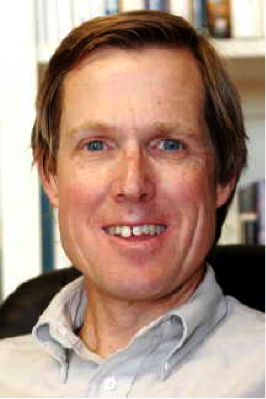by Elizabeth Barker
As students at the University of Portland, we are fortunate to have many amazing artists share their work with us. Recently, UP alumni Kunal Nayyar, from the primetime TV show The Big Bang Theory, came to share some wisdom at a Q and A before midterms. O. Alan Weltzien is going to join this list of speakers, and you definitely do not want to miss this one.

Weltzien, a current English professor at University of Montana Western, will be sharing his passion for the outdoors and literature with us at his reading. Weltzien has already tackled the trifecta of English study: being a “confirmed bookworm by age ten,” a published author, and a distinguished professor. Fully immersed in literature and nature alike, he uses these passions to carve out a space for eco-literature in Dillon, Montana.
This combination of space and literature is no new venture for Pacific Northwest literature fanatics, but Weltzien is also quick to pay homage. He gushes about this bursting genre, saying, “The personal or social relationship between the self and a given topography or two represents an abiding, fascinating, endlessly new and variable genre for people like me. I love writing, whether [it’s] called eco-fiction or eco-poetry or some other label, that foregrounds physical setting.” This concept should not be that new for students of Professor Larson’s Pacific Northwest Literature class, which is centered around the theory of literature relative to space. How lucky we are to be in a place where literature and the outdoors collide so beautifully.
 Weltzien is the well-known editor of The Norman Maclean Reader. However, his own contribution to literature is just as notable and important as his work preserving the writings of others. For true insight into Weltzien’s own work, check out his book Exceptional Mountains: A Cultural History of the Pacific Northwest Volcanoes. He says that the aim of his work is for readers “to be grabbed, to feel moved or at least piqued or amused, in some fashion. I want them to remember some of what they’ve encountered when they read my stuff. I hope it makes a difference, however slight, in the reader’s world or view of the world.” When reading literature in regards to space, what more could one want? To feel the cold mountain creek, hear the grizzly bear splash, and smell wild huckleberries sweet and tart in the air—without getting on a plane to Dillon—can only be achieved through literature.
Weltzien is the well-known editor of The Norman Maclean Reader. However, his own contribution to literature is just as notable and important as his work preserving the writings of others. For true insight into Weltzien’s own work, check out his book Exceptional Mountains: A Cultural History of the Pacific Northwest Volcanoes. He says that the aim of his work is for readers “to be grabbed, to feel moved or at least piqued or amused, in some fashion. I want them to remember some of what they’ve encountered when they read my stuff. I hope it makes a difference, however slight, in the reader’s world or view of the world.” When reading literature in regards to space, what more could one want? To feel the cold mountain creek, hear the grizzly bear splash, and smell wild huckleberries sweet and tart in the air—without getting on a plane to Dillon—can only be achieved through literature.
Through the design of the brick-clad buildings and the grand sequoias lining the pathways of our university, there lies a screaming idea that roots us in academia and study. Weltzien says to enjoy the constructed environment, but make sure to escape every now and then. “I’ve been taken with [Gary Snyder’s] Buddhist notion of hiking as a form of walking prayer. I think outdoors time, whether day hiking or backpacking or technical climbing, can bring us to ourselves as no other experience can. I think time away from the built environment can teach us about ourselves in ways that no inside domain can. Certainly higher altitudes brings me a kind of fierce joy I’ve not known elsewhere in my life.” Study hard, walk harder!
For some parting advice, Professor Weltzien urges students, “Don’t be afraid of experimentation; of learning how a given image or memory or subject might variably turn itself into a poem, an essay, or a story. I’d like to try a novel and have had a specific subject and treatment for one in mind for a decade, and I have to get other projects out of the way and commit to it! The more you write and rewrite, the more you learn your particular strengths—and weaknesses.”
Make sure to come see O. Alan Weltzien speak at the University Bookstore on Tuesday, October 24th at 7:30 pm!
